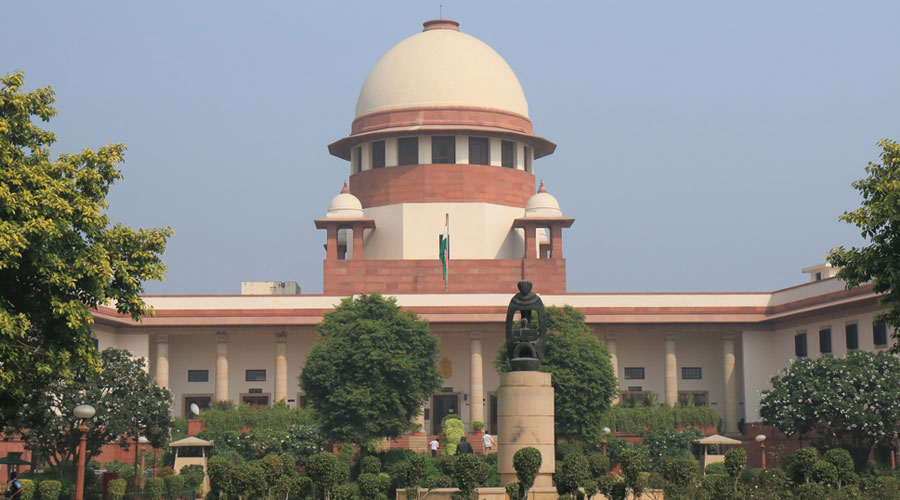
'No constitutional principles violated' -Supreme Court of India doesn’t stop ‘vanity project’ in Delhi (Central Vista Project that includes a new Parliament building in the capital)
The apex court asked the govt to set up adequate smog towers for the proposed construction and make it mandatory for all future major development projects

The court asked the government to set up adequate smog towers (largescale air purifiers) for the proposed construction and make it mandatory for all future major development projects in the country.
The dissenting judge, Justice Sanjiv Khanna, slammed the government for not making adequate disclosures and ignoring objections and concerns raised by environmentalists.
However, it is the majority verdict of Justices A.M. Khanwilkar and Dinesh Maheshwari that will prevail in the batch of petitions filed by Rajiv Suri and others.
The petitioners had contended that the project at massive public cost was ignoring various environmental impact assessments and other statutory norms that caution against arbitrary change in land use and felling of thousands of trees.
The Central Vista Project is expected to cost Rs 20,000 crore and cover a 3km to 4km stretch from the Rashtrapati Bhavan to India Gate. It envisages the construction of a triangular Parliament building, with a seating capacity for 900 to 1,200 MPs, by August 2022 when the country will be celebrating its 75th Independence Day.
Justice Khanwilkar, who authored the majority judgment, said: “We hold that there is no infirmity in the grant of a ‘no-objection’ by the Central Vista Committee, ‘approval’ by the Delhi Urban Art Commission and ‘prior approval’ by the Heritage Conservation Committee.”
The court added: “We further hold that the exercise of power by the central government… is just and proper and thus the modifications regarding change in land use… stands confirmed. The recommendation of environmental clearance… is just, proper and in accordance with law.”
In the 611-page judgment, the majority noted: “The government is entitled to commit errors or achieve successes in policy matters as long as constitutional principles are not violated in the process. It is not the court’s concern to enquire into the priorities of an elected government.
“…Public participation is not to supplant the discretion of the government or to retard the development work. It is only for inviting constructive suggestions/objections from all stakeholders for effective implementation of the policy of the government, to subserve public interest.”
The bench noted that in the present case, the petitioners wanted the court to venture into territories that are way beyond the contemplated powers of a constitutional court.
“We are compelled to wonder if we, in the absence of a legal mandate, can dictate the government to desist from spending money on one project and instead use it for something else, or if we can ask the government to run their offices only from areas decided by this court, or if we can question the wisdom of the government in focusing on a particular direction of development.”
The bench added: “In light of the settled law, we should be loath to venture into these areas. We need to say this because in the recent past, the route of public/social interest litigation is being increasingly invoked to call upon the court to examine pure concerns of policy and sorts of generalised grievances against the system.”
The court said the petitioners, despite their best efforts, had not been able to demonstrate a case of deprivation of life or personal liberty of any individual on account of any of the impugned executive actions.
Taking note of the rising pollution problem across the country, the court asked the Centre to set up smog towers of adequate capacity and use smog guns at the construction site.
The court called upon the environment ministry to “consider issuing similar general directions regarding installation of adequate capacity of smog towers as an integral part in all future major development projects whilst granting development permissions, particularly in cities with bad track record of air quality — be it relating to government buildings, townships or other private projects of similar scale and magnitude, including the use of smog guns during construction.”


0 Response to "'No constitutional principles violated' -Supreme Court of India doesn’t stop ‘vanity project’ in Delhi (Central Vista Project that includes a new Parliament building in the capital)"
Post a Comment
Disclaimer Note:
The views expressed in the articles published here are solely those of the author and do not necessarily reflect the official policy, position, or perspective of Kalimpong News or KalimNews. Kalimpong News and KalimNews disclaim all liability for the published or posted articles, news, and information and assume no responsibility for the accuracy or validity of the content.
Kalimpong News is a non-profit online news platform managed by KalimNews and operated under the Kalimpong Press Club.
Comment Policy:
We encourage respectful and constructive discussions. Please ensure decency while commenting and register with your email ID to participate.
Note: only a member of this blog may post a comment.